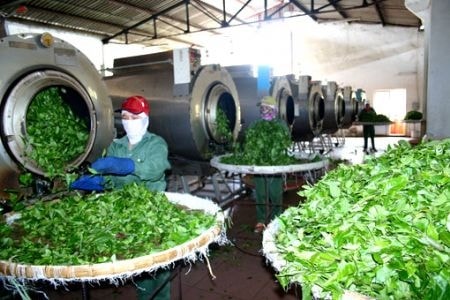Many batches of Vietnamese tea exports were returned by the EU.
The reason is that some batches of this tea still contain residues of two compounds Acetamiprid and Imidacloprid.

Illustration photo (doanhnhansaigon.vn)
Information provided by the Plant Protection Department, Ministry of Agriculture and Rural Development. These compounds are on the list of substances permitted for use to kill green leafhoppers and red beetles on tea in Vietnam.
According to information from the Vietnam Tea Association (Vitas), the returned goods were reported to have residues of two active ingredients of the pesticides Acetamiprid and Imidacloprid exceeding the permitted levels of EU countries - an area considered to have quite strict regulations on food hygiene and safety standards.
In Vietnam, currently, in the list of plant protection drugs, the two compounds mentioned above are still used on tea, but according to Mr. Nguyen Xuan Hong, Director of the Plant Protection Department, in January 2013, the Ministry of Agriculture and Rural Development issued Circular 03 on Plant Protection Drug Management, which stipulates that these two active ingredients can only be used on tea until August 2015. We are currently implementing a roadmap to remove these two active ingredients from the list of plant protection drugs on tea in Vietnam.
"We have sent documents to the Plant Protection Departments of tea-growing provinces and cities across the country, requesting that these Departments guide localities and the entire plant protection network to strictly control these two compounds," said Mr. Hong.
According to Mr. Nguyen Xuan Hong, the Plant Protection Department also recommended that businesses, before exporting tea to other countries, must strictly ensure the residue of these two active ingredients, and at the same time need to control their tea raw material areas well to ensure that the above active ingredients are not used.
“The Plant Protection Department also provides a list of safer and more effective plant protection drugs for localities to guide people to use instead. These drugs ensure that they meet the requirements of importing countries, thereby creating conditions to maintain and expand export markets, increase tea production efficiency and food safety not only for exporting countries but also domestically,” Mr. Nguyen Xuan Hong stated./.
According to (vov.vn) - LT






